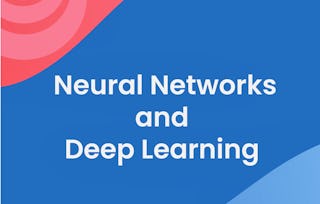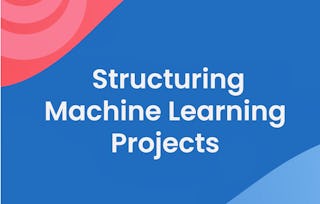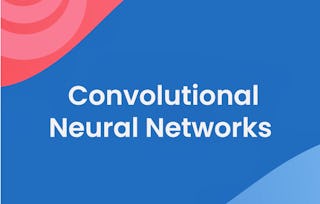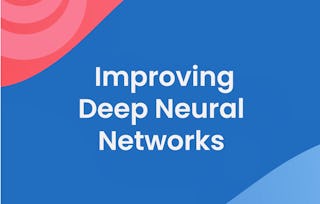In the fifth course of the Deep Learning Specialization, you will become familiar with sequence models and their exciting applications such as speech recognition, music synthesis, chatbots, machine translation, natural language processing (NLP), and more.
Sequence Models

Sequence Models
This course is part of Deep Learning Specialization



Instructors: Andrew Ng
Top Instructor
455,561 already enrolled
31,218 reviews
Recommended experience
Skills you'll gain
Details to know

Add to your LinkedIn profile
4 assignments
See how employees at top companies are mastering in-demand skills

Build your subject-matter expertise
- Learn new concepts from industry experts
- Gain a foundational understanding of a subject or tool
- Develop job-relevant skills with hands-on projects
- Earn a shareable career certificate

There are 4 modules in this course
Discover recurrent neural networks, a type of model that performs extremely well on temporal data, and several of its variants, including LSTMs, GRUs and Bidirectional RNNs,
What's included
12 videos5 readings1 assignment3 programming assignments
Natural language processing with deep learning is a powerful combination. Using word vector representations and embedding layers, train recurrent neural networks with outstanding performance across a wide variety of applications, including sentiment analysis, named entity recognition and neural machine translation.
What's included
10 videos2 readings1 assignment2 programming assignments
Augment your sequence models using an attention mechanism, an algorithm that helps your model decide where to focus its attention given a sequence of inputs. Then, explore speech recognition and how to deal with audio data.
What's included
10 videos2 readings1 assignment2 programming assignments
What's included
5 videos5 readings1 assignment1 programming assignment3 ungraded labs
Earn a career certificate
Add this credential to your LinkedIn profile, resume, or CV. Share it on social media and in your performance review.
Instructors

Offered by
Explore more from Machine Learning

DeepLearning.AI

DeepLearning.AI

DeepLearning.AI
Why people choose Coursera for their career

Felipe M.

Jennifer J.

Larry W.

Chaitanya A.
Learner reviews
- 5 stars
83.77%
- 4 stars
12.88%
- 3 stars
2.56%
- 2 stars
0.47%
- 1 star
0.30%
Showing 3 of 31218
Reviewed on Jun 12, 2019
A really joyful introduction in the Sequence Models, such as RNNs, LSTM etc. Sometimes the assignments got a little hard and with patience and help from forums, it gets achievable! Thanks again! :D
Reviewed on May 25, 2019
I am so grateful that Andrew and the team provided such good course, I learn so much from this course, I am so excited that see the wake word detection model actually work in the programming exercise
Reviewed on Mar 30, 2020
It's an exciting course to learn about sequence models. The assignment illustrate the concept via step by step to understand how to implement how to implement the models and process the input data.

Open new doors with Coursera Plus
Unlimited access to 10,000+ world-class courses, hands-on projects, and job-ready certificate programs - all included in your subscription
Advance your career with an online degree
Earn a degree from world-class universities - 100% online
Join over 3,400 global companies that choose Coursera for Business
Upskill your employees to excel in the digital economy
Frequently asked questions
To access the course materials, assignments and to earn a Certificate, you will need to purchase the Certificate experience when you enroll in a course. You can try a Free Trial instead, or apply for Financial Aid. The course may offer 'Full Course, No Certificate' instead. This option lets you see all course materials, submit required assessments, and get a final grade. This also means that you will not be able to purchase a Certificate experience.
When you enroll in the course, you get access to all of the courses in the Specialization, and you earn a certificate when you complete the work. Your electronic Certificate will be added to your Accomplishments page - from there, you can print your Certificate or add it to your LinkedIn profile.
Yes. In select learning programs, you can apply for financial aid or a scholarship if you can’t afford the enrollment fee. If fin aid or scholarship is available for your learning program selection, you’ll find a link to apply on the description page.
More questions
Financial aid available,
